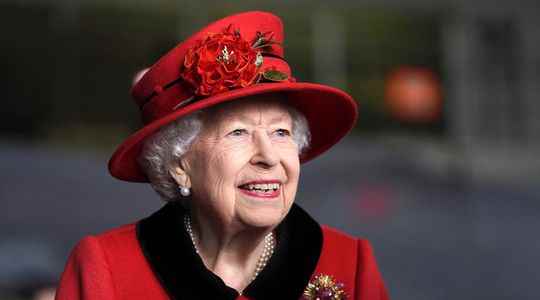His grandmother Victoria, Queen of Great Britain and Ireland and Empress of India, reigned over a quarter of the world’s population. It was said then that the sun never set on his empire. But at the beginning of the reign of Elizabeth II, in 1952, it saw its last days.
However, in addition to her royal titles as sovereign of Great Britain and Northern Ireland, defender of the Faith and head of the Church of England, the young Elizabeth II was also head of the Commonwealth, “free association of States- equal members”. In total, 54 states, on the way to independence or already former colonies. Today, it brings together nearly two and a half billion people and countries such as India, Pakistan, Bangladesh, Nigeria, Canada, Australia, but also the small Polynesian island of Tuvalu and its 12,000 inhabitants.
Much more than a language club, it is a community of which Elizabeth II very quickly understood, from the beginning of her reign, not only the importance but also the interest. By devoting a large part of her energy to it, through regular trips to all the countries that make it up, she has managed to maintain the link. “You have to see me to believe me,” she said of what she symbolizes, the Crown.
The Commonwealth meets biannually under the chairmanship of the British monarch and discusses issues that affect all its members, from human rights, children’s rights and the environment. In 2018, they decided that Prince Charles would become their leader when Elizabeth II died.
A new chapter begins
Despite this continuity, which one could say on the surface, this club is about to experience a new chapter in its history. And its bonds are likely to continue to distend. Of the 54 states forming it, 34 have already cut the umbilical cord with the British monarchy and have become, for the most part, republics. Although these countries are still part of the Commonwealth, they wanted to put an end to their status as subjects of the Crown and elect their own heads of state.
The latest was Barbados which, in December 2021, replaced the queen with a president elected during a ceremony which Prince Charles had the delicacy to attend in the company of the singer Rihanna, of Barbadian origin. He gave an elegant speech there in the tropical humidity before seeing the flag of the United Kingdom come down one last time from the masts.
While it should be noted that relations between Great Britain and its former colonial territories are remarkably calm and cordial, it is however expected that many countries will now follow the inexorable movement of divorce from the Crown. Australia has been thinking about it for a long time.
The Australians did not wait for the disappearance of the queen to appoint a minister in charge of the “decoupling” between the country and Buckingham Palace. Matt Thistlethwaite even took office days before the Queen’s Platinum Jubilee celebrations in June 2022. ‘an ‘update’ to our system,” he said. It only remains to decide how Australians want to elect their head of state, by universal suffrage or appointed by Parliament.
Charles III challenged by an evolution “without resentment”
An “update” or software change is also on the minds of the political class in the Caribbean. The visit of Prince William and his wife Kate in March 2022, seen as an attempt to strengthen ties with this part of the world, arguably had the opposite effect. Jamaica, the Bahamas and Belize welcomed them with flowers, but also with jeers and demonstrations by residents demanding public apologies and compensation for past crimes of slavery. “The time has come for Caribbean people to reflect: do we want to be a republic? What does that mean? If Jamaica made this choice, there would be a domino effect throughout the region”, insists the activist Patrick Vernon, of Jamaican origin and author of the book 100 Great Black Britons.
Aware of the meaning of history, Prince Charles said he was ready to support this development “calmly and without resentment.” In fact, he has everything to gain from it. By getting rid of its tinsel dating from the imperial era, the Commonwealth would no longer be accused of being a neo-colonial relic and could devote itself to what it does best: wielding Soft Power on the international scene. Because that is the strength of such an institution. Even if none of the 54 states that make up the Commonwealth were to swear allegiance to the sovereign and the British crown, it’s a safe bet that they would all choose to remain members. This club is a great tool for leveraging influence in the world.
“Only the small countries that make it up, such as the Caribbean islands, would have very little influence, including in their region. As members of the Commonwealth, they form a whole whose voice carries far, for example on issues like climate change, sums up Cindy McCreery, Australian royal family historian. The Commonwealth not only gives them a platform, but also a network of support.” Solidarity between members is indeed one of the principles of the Commonwealth.
The future King Charles III could also choose to make the Commonwealth a weapon for safeguarding the planet, one of his battle horses for decades, and thus give this institution a raison d’être and a concrete objective. for the 21st century.
